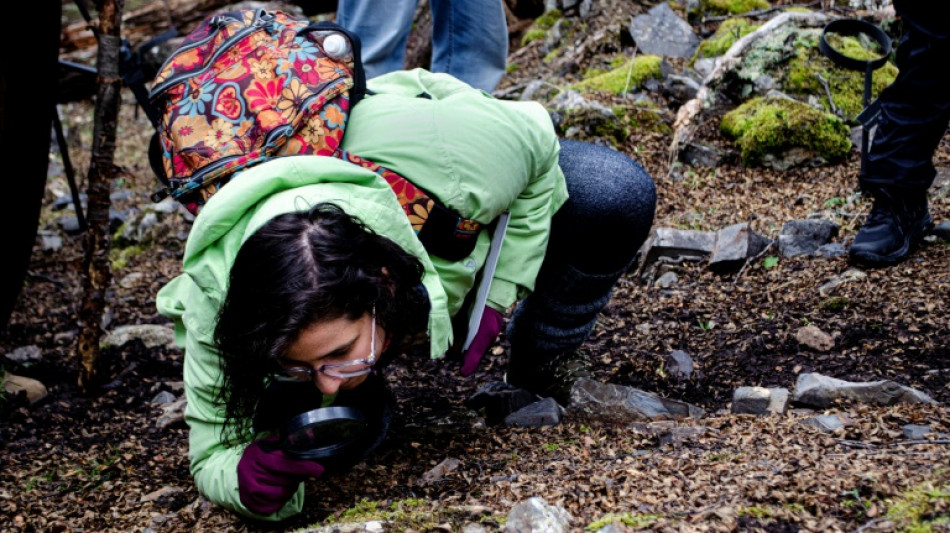
-
 'Like orphans': Argentina mourns loss of papal son
'Like orphans': Argentina mourns loss of papal son
-
Trump tariffs torch chances of meeting with China's Xi

-
 X rival Bluesky adds blue checks for trusted accounts
X rival Bluesky adds blue checks for trusted accounts
-
China to launch new crewed mission into space this week

-
 Morocco volunteers on Sahara clean-up mission
Morocco volunteers on Sahara clean-up mission
-
Latin America fondly farewells its first pontiff

-
 'I wanted it to work': Ukrainians disappointed by Easter truce
'I wanted it to work': Ukrainians disappointed by Easter truce
-
Harvard sues Trump over US federal funding cuts

-
 'One isn't born a saint': School nuns remember Pope Francis as a boy
'One isn't born a saint': School nuns remember Pope Francis as a boy
-
Battling Forest see off Spurs to boost Champions League hopes

-
 'I don't miss tennis' says Nadal
'I don't miss tennis' says Nadal
-
Biles 'not so sure' about competing at Los Angeles Olympics

-
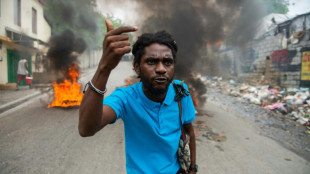 Gang-ravaged Haiti nearing 'point of no return', UN warns
Gang-ravaged Haiti nearing 'point of no return', UN warns
-
US assets slump again as Trump sharpens attack on Fed chief

-
 Forest see off Spurs to boost Champions League hopes
Forest see off Spurs to boost Champions League hopes
-
Trump says Pope Francis 'loved the world,' will attend funeral

-
 Oscar voters required to view all films before casting ballots
Oscar voters required to view all films before casting ballots
-
Bucks' Lillard upgraded to 'questionable' for game 2 v Pacers

-
 Duplantis and Biles win Laureus World Sports Awards
Duplantis and Biles win Laureus World Sports Awards
-
US urges curb of Google's search dominance as AI looms

-
 The Pope with 'two left feet' who loved the 'beautiful game'
The Pope with 'two left feet' who loved the 'beautiful game'
-
With Pope Francis death, Trump loses top moral critic
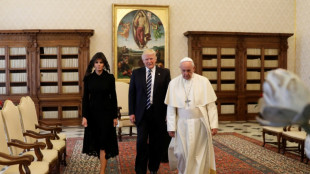
-
 Mourning Americans contrast Trump approach to late Pope Francis
Mourning Americans contrast Trump approach to late Pope Francis
-
Leeds and Burnley promoted to Premier League

-
 Racist gunman jailed for life over US supermarket massacre
Racist gunman jailed for life over US supermarket massacre
-
Trump backs Pentagon chief despite new Signal chat scandal

-
 Macron vows to step up reconstruction in cyclone-hit Mayotte
Macron vows to step up reconstruction in cyclone-hit Mayotte
-
Gill, Sudharsan help toppers Gujarat boss Kolkata in IPL

-
 Messi, San Lorenzo bid farewell to football fan Pope Francis
Messi, San Lorenzo bid farewell to football fan Pope Francis
-
Leeds on brink of Premier League promotion after smashing Stoke

-
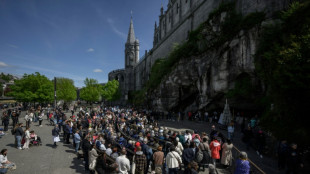 In Lourdes, Catholic pilgrims mourn the 'pope of the poor'
In Lourdes, Catholic pilgrims mourn the 'pope of the poor'
-
Korir wins men's Boston Marathon, Lokedi upstages Obiri

-
 China's CATL launches new EV sodium battery
China's CATL launches new EV sodium battery
-
Korir wins Boston Marathon, Lokedi upstages Obiri

-
 Francis, a pope for the internet age
Francis, a pope for the internet age
-
Iraq's top Shiite cleric says Pope Francis sought peace
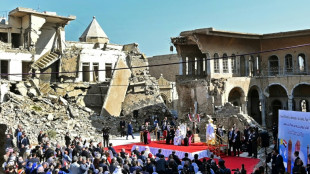
-
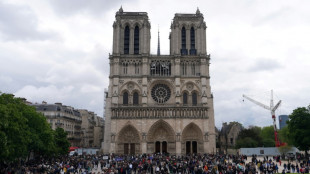 Mourners flock to world's churches to grieve Pope Francis
Mourners flock to world's churches to grieve Pope Francis
-
Trump says Pope Francis 'loved the world'

-
 Sri Lanka recalls Pope Francis' compassion on Easter bombing anniversary
Sri Lanka recalls Pope Francis' compassion on Easter bombing anniversary
-
Pope Francis inspired IOC president Bach to create refugee team

-
 Alexander-Arnold will be remembered for 'good things' at Liverpool: Van Dijk
Alexander-Arnold will be remembered for 'good things' at Liverpool: Van Dijk
-
US VP Vance meets Indian PM Modi for tough talks on trade

-
 Pentagon chief dismisses reports he shared military info with wife
Pentagon chief dismisses reports he shared military info with wife
-
15 potential successors to Pope Francis
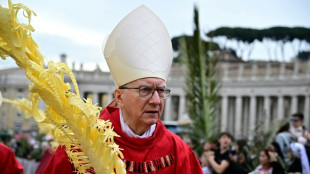
-
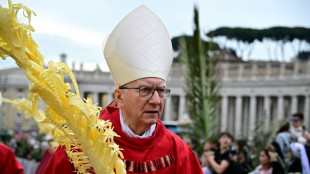 The papabili - 15 potential successors to Pope Francis
The papabili - 15 potential successors to Pope Francis
-
Zhao sets up all-China clash after beating 2024 world snooker finalist Jones

-
 Ostapenko stuns Sabalenka to win Stuttgart title
Ostapenko stuns Sabalenka to win Stuttgart title
-
Argentina mourns loss of papal son
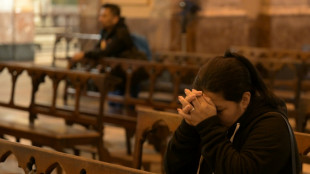
-
 African leaders praise Pope Francis's 'legacy of compassion'
African leaders praise Pope Francis's 'legacy of compassion'
-
Mehidy's five wickets help Bangladesh fight back in first Zimbabwe Test


Chile's distant paradise where scientists study climate change
Hidden inside pristine forests in Chile's deep south, known as the end of the world, lie potential early warning signs of climate change.
Puerto Williams on Navarino island, which is separated from the South American mainland by the Beagle Channel, is the world's southern-most town.
Far from the pollution that blights major urban and industrial centers, it is a paradise that provides unique conditions to study global warming.
"There is nowhere else like it," Ricardo Rozzi, director of the Cape Horn International Center for global change studies and bio-cultural conservation in Puerto Williams, told AFP.
It is "a place that is especially sensitive to climate change" as average temperatures do not rise above five degrees Celsius.
This cold and windy area is the last inhabited southern frontier before reaching the Antarctic.
The ethnobotanical Omora park is home to an immense variety of lichens, mosses and fungi that scientists study by crouching down onto their knees with magnifying glasses.
In the crystal clear Robalo river, minuscule organisms act as sentinels of the changes produced by global warming.
In both the park and river, the alarm bells are ringing.
- Moss and lichen on the move -
At this latitude -- 55 degrees south -- climate change has an exponential effect on flora that react by seeking out low temperatures, said Rozzi, 61.
"The most obvious aspect of climate change is the rising temperatures," he said.
"These lichens cannot survive" if a certain threshold is passed.
To escape the higher temperatures, they move.
"In the case of (mosses) we've noticed that they have moved. Before they were between 50 and 350 (meters above sea level) and now they are between 100 and 400," said Rozzi.
He says Omora has more diversity per square meter of lichens and mosses than anywhere else in the world.
They also help to absorb carbon dioxide.
Another aspect is the elevational diversity gradient, an ecological pattern in which biodiversity changes with elevation.
The 700-meter high Bandera hill's biodiversity changes every 200 meters and there is a mammoth 1.5 degrees Celsius difference in temperature between top and bottom.
"We can see what changes happen in the high mountains and in the area close to the sea in a very short distance, and we can see how the temperature affects the biodiversity that lives in this river," Tamara Contador, 38, a biologist at the Cape Horn International Center, told AFP.
She studies the gradients themselves.
If the height difference between gradients rises or falls on the mountain, scientists can determine whether there has been a global change in temperature.
They say there has been.
- Avoiding 'extermination' -
"On a global level, the polar and subpolar ecosystems are the most affected by climate change, so we are in a place where climate change has a much bigger effect on biodiversity than other places," said Contador.
River organisms also form part of the alert system.
"The organisms that live here are also indicators of water quality and global environmental change," added Contador.
River organisms move about and have already increased their reproductive cycle, says Rozzi. This confirms there has been a small change to the climate in the area that could have been much greater elsewhere on the planet.
"Some insects that have an annual eggs to larvae to adulthood cycle are now having two cycles because the temperature has risen," said Rozzi.
By studying these organisms and learning from them "we can avoid crossing the threshold that brings us to the extermination of humanity and other life forms," he added.
K.Brown--BTB


